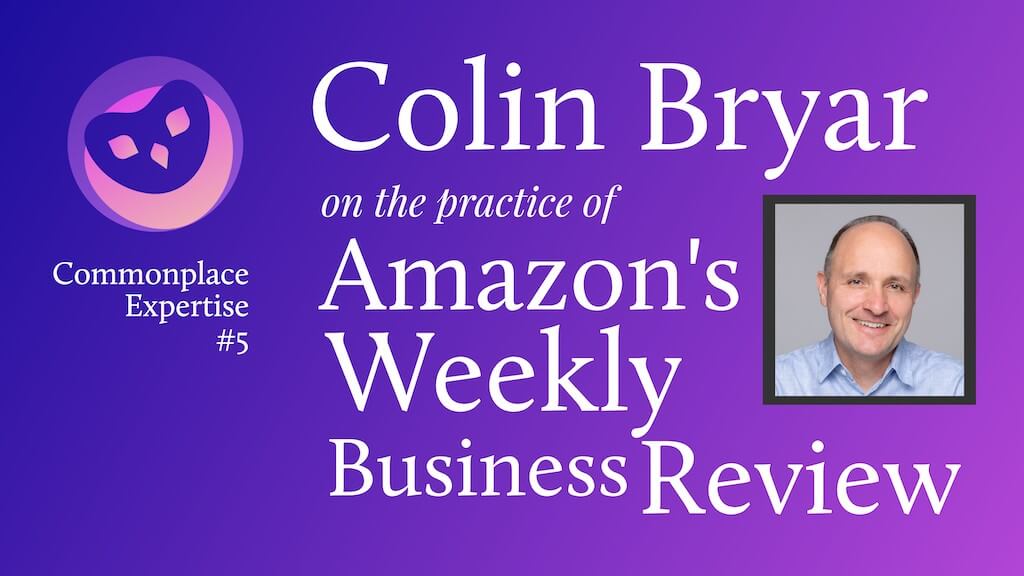Here’s something you probably already know: the hardest part of working in data isn’t really the tools or the technology ... it’s the dealing with people. Specifically, it’s about getting businesspeople to see what data can do for them.
After all, if they can see what data can do for them, then they’ll see what you can do for them. They get to accomplish their business goals, you get to demonstrate value.
Except that this doesn’t seem to get talked about as much.
Most data publications and data vendors put out lots of content ... but mostly about their tools. There are a gajillion blog posts and white papers about ‘the Modern Data Stack’, or ‘how to build a data catalog’ or ‘the rise of the Analytics Engineer!’ but there is nearly no writing on how to actually become data driven in business.
So: how do you become data driven in business?
How do you use data in meaningful ways — in ways that materially change the arc of a business?
How do you take a question that a businessperson has — and then turn that on its head into something that changes the business and helps them hit their organisational goals?
Well, you've come to the right place.
This is a series of free essays to help you do just that.
And unlike the vast majority of data content out there, we’re not going to talk about tools. No buzzwords. And no fads.
Just simple ideas, expressed in clear language, that you can steal and use immediately, especially when you talk to your businesspeople.
The following essays are drawn from a number of different Series in the Commoncog back catalog. Bookmark this page, or sign up for our newsletter for updates to this series:
The Essays: Help Your Business People Become More Data Driven
- Becoming Data Driven, From First Principles — This is a soup-to-nuts distillation of a number of common-sense ideas, drawn from W. Edwards Deming, and expressed at Amazon. Why is it important to become data driven? What is the purpose of using data in business? Why is it so hard to use data? The final conclusion of this essay leads us to something rather profound: something called ‘the process control worldview’ — which should fundamentally change the way you think about data.
- Goodhart’s Law Isn’t As Useful As You Might Think — Goodhart’s Law states that “when a measure becomes a target, it ceases to be a good measure.” We talk about why this isn’t a very useful framing, and how there is an alternate framing that is more useful. This is Joiner’s Rule: “when people are pressured to hit a target, they may do one of three things: 1) They may work to improve the system, 2) They may distort the system, or 3) They may distort the data.” This suggests that you may do three things to prevent Goodhart’s Law: 1) Give them slack to improve the system, 2) Make it hard to distort the system, or 3) Make it hard to distort the data. We talk about how Amazon does this.
- What’s an Operational Definition Anyway? — Let’s say that you want to get serious about data in your company. What’s the first thing that you need to do? Set up a data warehouse? Create a data catalog? Build some pipelines? No: the answer is more foundational and more boring than that — it’s to get all your stakeholders to decide what your metrics mean. And it turns out that there’s a 50 year old method for defining what a metric means, and it works for any kind of metric: this is the ‘Operational Definition’. Copy this, and then don’t think about it any further — this will prevent you from some very painful mistakes down the line.
- The Two Types of Data Analysis — There are, broadly speaking, two types of data analyses: experimental studies and observational studies. Experimental studies divide a population into two groups: you run an intervention on one group, and keep the second group as a control. Observation studies look at a stream of numbers and asks “is the number we’re looking at worth worrying about?” In business, it’s more common to experience the latter question than the former. It’s important to differentiate between these two types of analyses! Once you know the differences, you’ll know when to use one or the other.
- There is No Truth in Business, Only Knowledge — What is the purpose of data in business? Why bother becoming data driven in the first place? The answer that W. Edwards Deming offers is simple: the purpose of data is knowledge. Knowledge is defined as ‘theories or models that allow you to better predict the outcomes of your business actions.’ Everything you do with data in business is downstream from this observation. This essay examines this fundamental worldview. It is slightly philosophical; skip this if you’re not interested in business philosophy.
- What the CEO Wants You To Know — A summary of a great book by Ram Charan, that explains the bare minimum you need to know about how businesses work.
- COMING SOON: The Amazon Weekly Business Review — Every Wednesday morning, Amazon reviews 400-500 metrics that represent the causal model of their entire business. This essay will cover the details of this practice, and why the WBR is best seen as a process control tool.
- COMING SOON: The Amazon-Style WBR in Practice — Notes from putting the Amazon-style WBR to practice, as a non-Amazonian, in a company that isn’t Amazon.
See Also:

For updates to this series, subscribe to the Commoncog newsletter below:
Sign Up For Updates
There are still a number of essays that have not been published. Subscribe to the Commoncog Newsletter below to keep track:
New to Commoncog?
Commoncog is a publication about accelerating business expertise. That means being rigorous about how you think about and run businesses.
Join thousands of operators and investors reading our newsletter:
Originally published , last updated .

